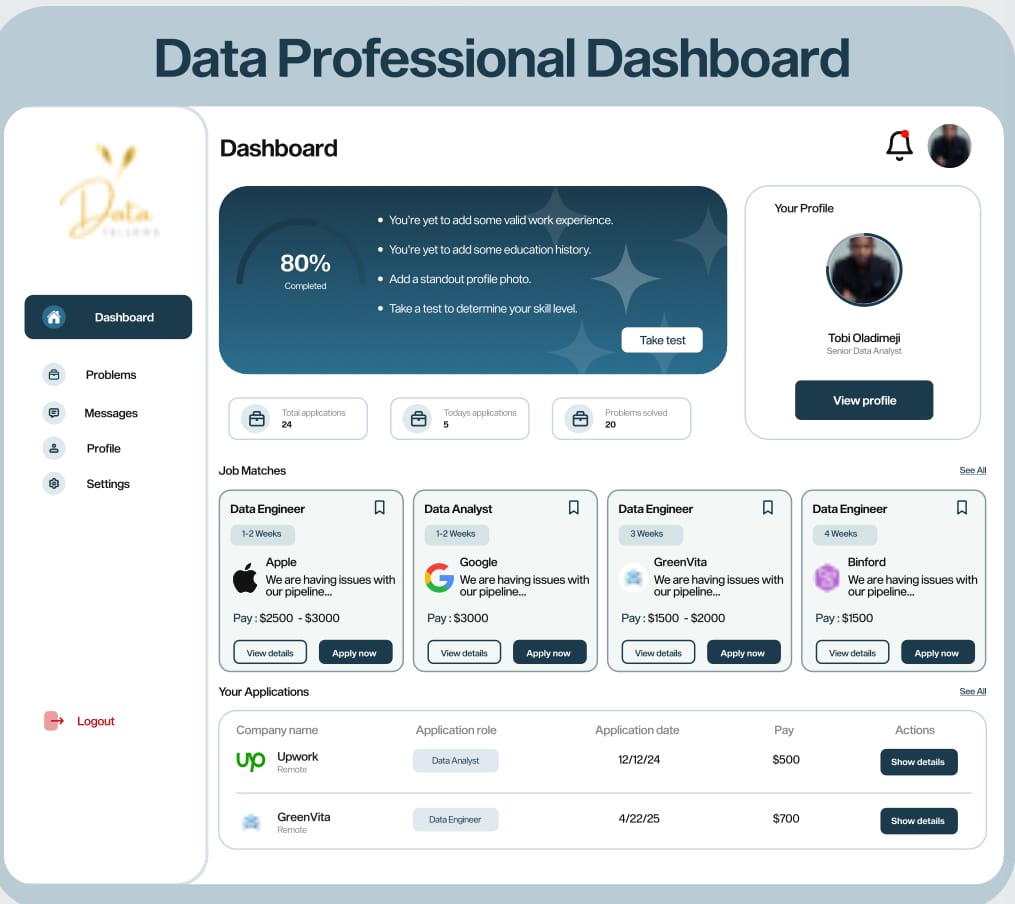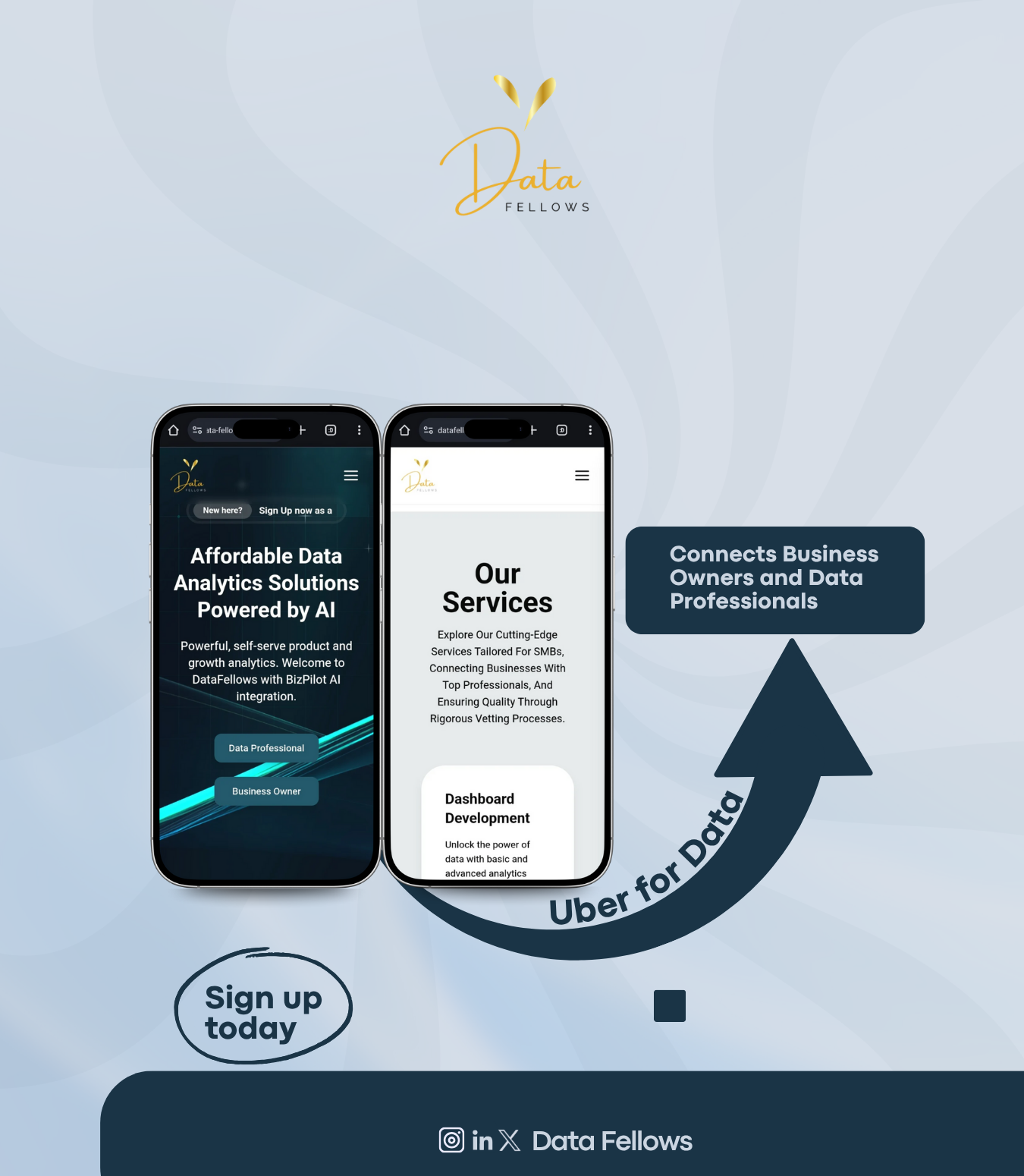Let’s talk about data in a way that actually makes sense.
Most people hear the word “data” and immediately think it’s only for tech people or big companies. But that’s not true. You don’t need a tech degree or fancy tools to use data. In fact, as a small business owner, you are already surrounded by data every single day. You just may not be calling it that.
Every customer that walks through your door, every sale you make, every question someone asks you on social media — that is all data. The truth is, anything that is based on fact is backed by data. And when you start paying attention to it, your business can grow in ways you didn’t expect.
Here are some very practical and simple ways to start using data in your business right now.

1. Ask questions and listen well
Let me take you back to my childhood. I used to follow my mum to the market. She ran a small business, and I always noticed something interesting. She would talk to almost every customer. She would ask them where they were coming from, how they found her shop, what they were looking for, and sometimes even who told them about her.
At the time, I thought she was just being friendly. But now I realize that she was collecting data without knowing it.
By asking those questions, she was learning about customer behavior. For example, if she noticed many people came from a particular area, she could decide to promote her business more in that location. If they found her through word of mouth or a flyer, she would know which method of marketing was working best.
That kind of information helps you know where to focus your efforts. You can improve your marketing, serve people better, and even increase your revenue just by understanding your customers more deeply.
So start there. Ask questions. Pay attention to the answers. Write them down if you need to. That is your first form of business data.

2. Stay close to simple information about your market
You do not need to hire a research firm or do anything complicated. Just keep your eyes open and observe. If you are a hairdresser, ask your customers what styles they like most. If you sell food, ask them what meals they wish you had on your menu. If you run a service, ask what challenges they face before they find you.
This is your version of market research. It is not about fancy reports. It is about staying close to the kind of information that helps you make better choices.
You can also check what other businesses like yours are doing. Look at their websites, social media pages, or customer reviews. You might get ideas on what to improve or offer next.
3. Use easy tools to organize what you learn
You do not need expensive software. Tools like Microsoft Excel or Google Sheets are more than enough.
Let’s say you run a small food delivery business. You can open a simple spreadsheet and create a few columns like this:
- Customer name
- What they ordered
- Where they live
- How they found you
- How many times they have ordered
If you record this kind of information over a few weeks, you will start to see patterns. You might notice that most of your customers come from one particular area. Or maybe there is a meal that everyone keeps ordering. That tells you where to focus.
Data is not about making things complex. It is about seeing clearly. The more you track what is happening, the easier it becomes to make smart decisions.

A simple recommendation that can help you even more
Sometimes you might feel like you are doing all this but still not sure what to do next. That is normal. That is why I want to recommend something we created at Data Fellows.
It is a tool called BizPilot. And it is designed to give you clarity about your business in a very short time.
Let me explain it this way. Imagine waking up on a Monday morning feeling sick. You go to the hospital and meet the doctor. The doctor asks you a few questions, checks your symptoms, and tells you what is wrong. You probably do not feel better instantly, but now you understand what is going on. The doctor then gives you a prescription and explains how to take it. That is when the healing begins.
That is exactly how BizPilot works. It is like a business doctor. It asks you some questions about what you are doing. Then it gives you helpful feedback. It helps you see clearly what is working and what is not. And if you need more support, it connects you with someone who can help you figure things out professionally.
You can try it for free at www.datafellowsai.com
You do not need to be an expert. You just need to start.
I hope this article has opened your eyes to how powerful data can be — even for the smallest business. Whether it is asking better questions, paying attention to trends, or using simple tools to organize your findings, you are more capable than you think.
I look forward to sharing more insights with you. Until then, keep learning, stay curious, and most importantly, stay data-driven.
Reference links
Tobi Oladimeji is a seasoned data professional and community leader committed to helping small businesses leverage data for better decision-making. With experience across industries and regions including Canada, India, Australia, UK, US and Germany. Tobi brings a global perspective to solving complex business challenges.
His leadership journey began at Landmark University, where he served as Assistant Academic Director, Academic Director, and ultimately President of the Nigeria Association of Computing Students (NACOS). There, he built strong academic and professional support systems for students, fostering a thriving tech culture.
In 2021, Tobi was named a top 17 finalist in the Global Data Hackathon hosted by 10alytics, showcasing his technical expertise and ability to collaborate across cultures and time zones.
In 2022, he founded Data Fellows, a platform & community that connects over 800 data professionals with small and medium-sized businesses. Through Data Fellows, Tobi has built a community focused on mentorship, collaboration, and delivering accessible analytics solutions that help businesses unlock innovation.
In 2024, Tobi was accepted into the League of Innovators, Canada’s top accelerator for young founders under 30, and was featured by AfriBlocks, a Techstars-backed platform that highlights high-impact African professionals.
Tobi’s mission is to empower businesses and professionals by building scalable solutions, fostering collaboration, and creating lasting relationships.











